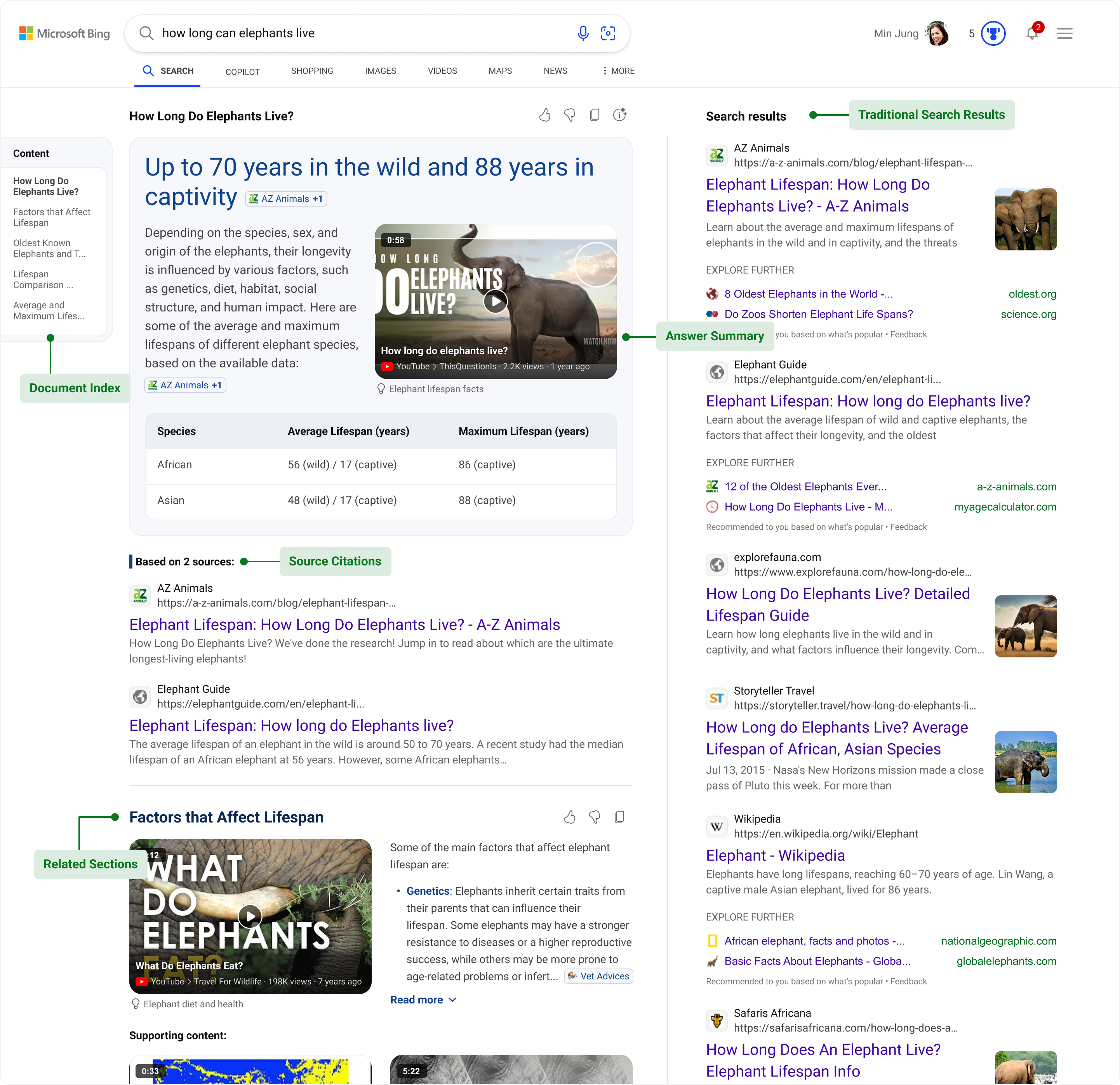In July 2024, Microsoft released a new AI-powered SERP feature on Bing, named the Generative Search Experience (GSE)… Not to confused with Google’s previous beta feature, the Search Generative Experience (SGE).
Bing has been leveraging co-pilot within the core Search product for some time, but this represents a big shift in how Bing delivers search results, starting with a small set of test queries.
This new experience combines the foundation of Bing’s search results with the power of large and small language models (LLMs and SLMs). It understands the search query, reviews millions of sources of information, dynamically matches content, and generates search results in a new AI-generated layout to fulfill the intent of the user’s query more effectively.

Bing’s Generative Search Experience (GSE)
The Generative Search Experience is Bing’s latest foray into bridging the user-gap between traditional Search engines and utilizing AI as an information discovery system.
Where the search engine doesn’t just return a list of links but generates comprehensive answers to queries by synthesizing information from multiple sources. This is powered by advanced AI models that understand the context and nuances of a search query, aiming to deliver more relevant and nuanced results.
How is Bing Testing GSE?
Bing has introduced GSE to a limited number of queries to monitor how it performs in real-world scenarios.
The experiment focuses on queries where traditional search results often fall short, such as those requiring in-depth explanations or combining information from various sources.
Bing’s system generates a synthesized response that it believes will best meet the user’s needs. Similar to Google’s SGE/AI Overviews, however Bing’s version feels (in my opinion) to have a higher level of user immersion.
This has further implications for Bing organic traffic, as with greater user immersion there is less need to leave the SERP.
Implications for Bing SEO
GSE aims to make search engines like Bing more self-contained by generating direct answers instead of just providing links.
This could reduce the need for users to visit multiple websites, positioning search engines as primary sources of information.
SEO will likely shift from simply ranking higher on search results to ensuring that content is chosen by AI as a reliable source.
This means content accuracy, depth, and credibility will become even more critical for success in the digital landscape.